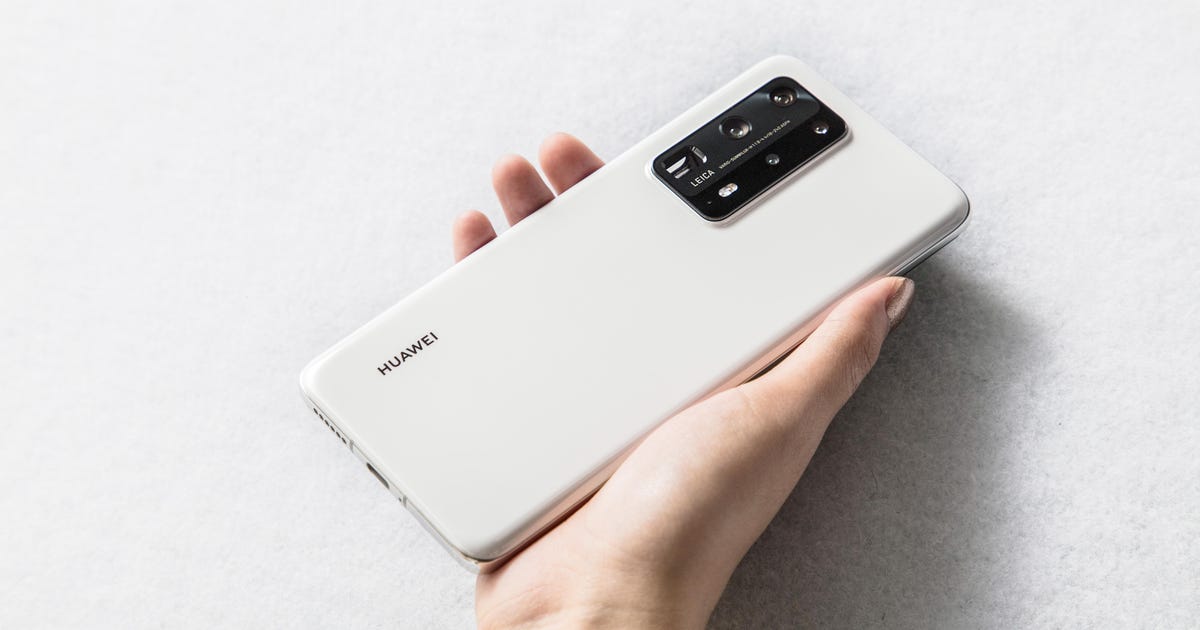Huawei P40 Phones Won't Have Google, But May Rival The Best Cameras Out There

Huawei P40 phones won't have Google, but may rival the best cameras out there
Huawei has just taken the wraps off its latest superphone series. It unveiled the P40, P40 Pro and the P40 Pro Plus in an event livestreamed on YouTube Thursday, and there's no question that these phones are all about the cameras. The P40 costs 799 euros (about $880, £730 or AU$1,450); the P40 Pro is 999 euros (about $1,100, £910 or AU$1,820). Both will ship April 7. The P40 Pro Plus will cost 1,399 euros (about $1,540, £1,280 or AU$2,550) and ships in June. None of them will be available officially in the US, and none will have access to Google services, due to Huawei's ongoing difficulties with the US government.
The standard P40 comes with three rear cameras, the P40 Pro ups that to four and the P40 Pro Plus comes with five. All three models have a 50-megapixel standard zoom lens, equipped with a larger sensor for better low-light imaging. The standard P40 also has a 16-megapixel ultra wide lens and an 8-megapixel optical zoom.
The P40 Pro ups that to a 40-megapixel ultrawide lens and a 12-megapixel 5x optical zoom. It also has a time-of-flight sensor for better depth sensing to add an artfully out-of-focus background to your portraits.

The P40 Pro Plus is the hero of the trio. It comes with the standard 50-megapixel zoom, a 40-megapixel ultrawide-angle camera, an 8-megapixel optical zoom, as well as the time-of-flight depth sensor. The zoom skills are what set the Pro Plus apart from the rest. This is the first time we've seen a 10x optical zoom on a phone and I'm keen to see just how it compares to the 4x optical zoom offered on Samsung's Galaxy S20 Ultra.
The Pro Plus can also achieve 100x zoom -- just like the S20 Ultra. Huawei showed off a comparison photo from both phones taken at 100x zoom. Huawei's did look clearer, but I'll reserve judgment on that until I can get both phones side by side.
Apart from the zoom, the P40 range promises improved low-light imaging, which is exciting as Huawei's phones were already superb in the dark. They also get various AI updates including a mode that can apparently automatically remove passersby in your photos. Again, I'm going to wait and see how that works outside the presentation.

Beyond the cameras, the phones have some impressive hardware. The display on the P40 Pro and P40 Pro Plus wraps so far over the sides of the phone that there's basically no bezel at all. It looks great in the images and videos Huawei's shown off so far, but whether it makes them a little awkward to hold remains to be seen. The screens themselves are OLED, have high resolutions and support HDR -- which is all pretty much what you'd expect.
Under the hood is Huawei's latest Kirin 990 processor, which supports 5G. It also promises better performance and better power consumption. I'll be putting that to the test soon.
Other treats include faster in-screen fingerprint scanning, faster wireless charging and updates to Huawei's EMUI 10.1 software for better multitasking.

Speaking of software, these phones won't support Google services, so you won't have access to the Google Play Store, Gmail, Maps and so on. That's going to be a major downside for most people, but Huawei did make a lot of noise about the increase in developers it's working with and the number of people using its own app store. There are plenty of apps on Huawei's app gallery, but it's worth checking out if your favorites are available before you spend your money. (Read more about what it's like to use a phone without Google services in our Huawei Mate 30 Pro review from a few months ago.)
Overall these phones are pretty much what I'd expect from Huawei -- potentially awesome camera skills, attractive design, 5G, the latest processors and no Google. But how it all comes together in the real world remains to be seen when I put the phones to the test.
Source
